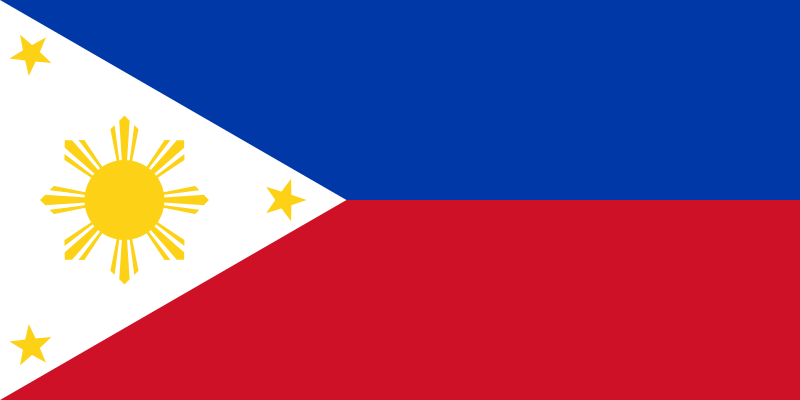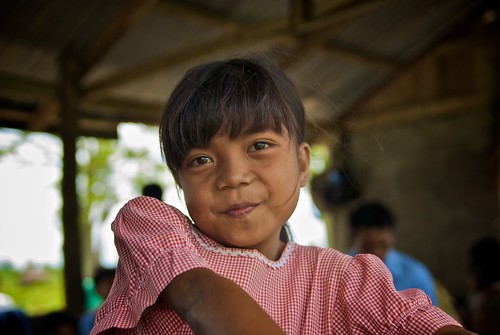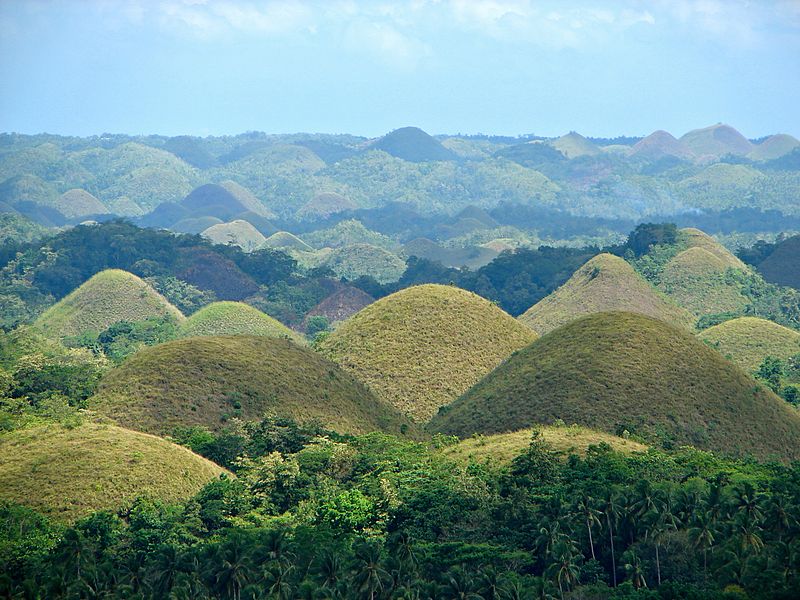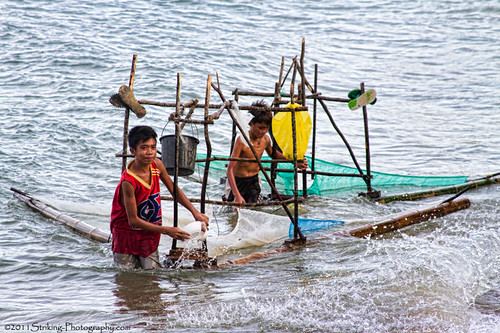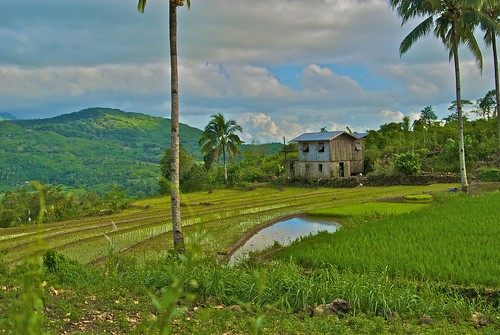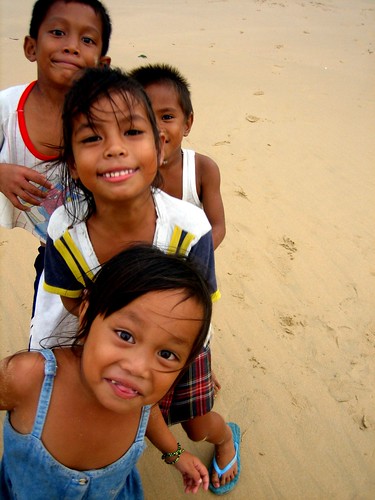Difference between revisions of "Adopting from Philippines"
m (→SOURCE) |
|||
| (13 intermediate revisions by 2 users not shown) | |||
| Line 1: | Line 1: | ||
| + | {{#eimage:http://upload.wikimedia.org/wikipedia/commons/thumb/9/99/Flag_of_the_Philippines.svg/800px-Flag_of_the_Philippines.svg.png|410x579px|thumb|'''The official flag.'''<BR/>Source: cia.gov.}} | ||
| − | {{#eimage: | + | {{#eimage:https://www.cia.gov/library/publications/the-world-factbook/graphics/maps/rp-map.gif|410x579px|thumb|'''Map.'''<BR/>Source: cia.gov.}} |
| − | {{#eimage:https://www.cia.gov/library/publications/the-world-factbook/graphics/ | + | {{#eimage:https://www.cia.gov/library/publications/the-world-factbook/graphics/locator/eas/rp_large_locator.gif|410x579px|thumb|'''Map.'''<BR/>Source: cia.gov.}} |
| − | + | {{#eimage:http://upload.wikimedia.org/wikipedia/commons/thumb/0/00/Pana_Banaue_Rice_Terraces.jpg/800px-Pana_Banaue_Rice_Terraces.jpg|410x579px|thumb|'''Panaramic View Banaue Rice Terraces.'''<BR/>Source: Wikipedia.org.}} | |
| − | + | ||
| − | {{#eimage:http://upload.wikimedia.org/wikipedia/commons/thumb/0/00/Pana_Banaue_Rice_Terraces.jpg/800px-Pana_Banaue_Rice_Terraces.jpg|410x579px|thumb|'''Panaramic View Banaue Rice Terraces | + | |
{{#eimage:https://farm3.staticflickr.com/2673/4121678336_2954e6202e.jpg|410x579px|thumb|'''A Filipino girl.'''<BR/>Source: flickr.com.}} | {{#eimage:https://farm3.staticflickr.com/2673/4121678336_2954e6202e.jpg|410x579px|thumb|'''A Filipino girl.'''<BR/>Source: flickr.com.}} | ||
| − | {{#eimage:http://upload.wikimedia.org/wikipedia/commons/thumb/2/28/Chocolate_Hills_overview.JPG/800px-Chocolate_Hills_overview.JPG|410x579px|thumb|'''Chocolate Hills, Bohol | + | {{#eimage:http://upload.wikimedia.org/wikipedia/commons/thumb/2/28/Chocolate_Hills_overview.JPG/800px-Chocolate_Hills_overview.JPG|410x579px|thumb|'''Chocolate Hills, Bohol.'''<BR/>Source: Wikipedia.org.}} |
{{#eimage:https://farm6.staticflickr.com/5109/5604711640_5800969b5a.jpg|410x579px|thumb|'''Two Filipino boys fishing.'''<BR/>Source: flickr.com.}} | {{#eimage:https://farm6.staticflickr.com/5109/5604711640_5800969b5a.jpg|410x579px|thumb|'''Two Filipino boys fishing.'''<BR/>Source: flickr.com.}} | ||
| − | {{#eimage:http://upload.wikimedia.org/wikipedia/commons/thumb/7/70/Montage_of_Manila.png/339px-Montage_of_Manila.png|410x579px|thumb|'''Collage of Manila | + | {{#eimage:http://upload.wikimedia.org/wikipedia/commons/thumb/7/70/Montage_of_Manila.png/339px-Montage_of_Manila.png|410x579px|thumb|'''Collage of Manila.'''<BR/>Source: Wikipedia.org.}} |
{{#eimage:https://farm3.staticflickr.com/2585/4120907347_80d1be2745.jpg|410x579px|thumb|'''A Filipino rice farm and house.'''<BR/>Source: flickr.com.}} | {{#eimage:https://farm3.staticflickr.com/2585/4120907347_80d1be2745.jpg|410x579px|thumb|'''A Filipino rice farm and house.'''<BR/>Source: flickr.com.}} | ||
| Line 20: | Line 19: | ||
{{#eimage:https://farm4.staticflickr.com/3161/2633060777_6e2d35224c.jpg|410x579px|thumb|'''Filipino children.'''<BR/>Source: flickr.com.}} | {{#eimage:https://farm4.staticflickr.com/3161/2633060777_6e2d35224c.jpg|410x579px|thumb|'''Filipino children.'''<BR/>Source: flickr.com.}} | ||
| + | {{#eimage:http://upload.wikimedia.org/wikipedia/commons/thumb/7/78/Fort_San_Pedro%2C_Cebu%2C_Philippines.jpg/800px-Fort_San_Pedro%2C_Cebu%2C_Philippines.jpg|410x579px|thumb|'''Fort San Pedro, Cebu.'''<BR/>Source: Wikipedia.org.}} | ||
| − | |||
| + | '''Notice: As of July 14, 2014, all individuals and agencies facilitating [[international]] adoptions must be in compliance with the Intercountry [[Universal Accreditation Act]].''' | ||
| − | + | The information contained on this website is for educational purposes only and is not intended to be a substitute for professional legal advice. Always seek the advice of a licensed and qualified professional. While the content of this website is frequently updated, information changes rapidly and therefore, some information may be out of date, and/or contain inaccuracies, omissions or typographical errors. | |
| − | |||
| − | + | =About Philippines= | |
| + | The Philippine Islands became a Spanish colony during the 16th century; they were ceded to the US in 1898 following the Spanish-American War. In 1935 the [[Philippines]] became a self-governing commonwealth. Manuel QUEZON was elected president and was tasked with preparing the country for independence after a 10-year transition. In 1942 the islands fell under Japanese occupation during World War II, and US forces and Filipinos fought together during 1944-45 to regain control. To learn more please read [[About Philippines (The Country)]]. | ||
| − | + | To learn more about specific facts regarding the [[Philippines]] please read [[Philippines Fact Sheet]]. | |
| + | To learn about the [[Philippines National Anthem]] and its history please read [[Philippines National Anthem]]. | ||
| − | |||
| + | =Philippines Adoption Alert= | ||
| + | There have been multiple [[adoption]] alerts for the [[Philippines]] over the years. To learn more please read [[Philippines Adoption Alert]]. | ||
| − | + | =Hague Convention Information= | |
| − | The | + | The [[Philippines]] is party to the Hague Convention on Protection of Children and Co-operation in Respect of Intercountry [[Adoption]] ([http://adoption.state.gov/hague_convention/overview.php Hague Adoption Convention]). Therefore all adoptions between the [[Philippines]] and the United States must meet the requirements of the Convention and U.S. law implementing the Convention. To learn more please read about [[Philippines and the Hague Convention]]. |
| − | + | =Who Can Adopt= | |
| + | [[Adoption]] between the United States and the [[Philippines]] is governed by the Hague [[Adoption]] Convention. Therefore to [[adopt]] from the [[Philippines]], you must first be found eligible to [[adopt]] by the U.S. Government. The U.S. Government agency responsible for making this determination is the Department of Homeland Security, U.S. Citizenship and Immigration Services (USCIS). [http://adoption.state.gov/adoption_process/who.php Learn more]. To learn more please read about [[Who Can Adopt from Philippines]]. | ||
| − | |||
| − | |||
| − | |||
| − | |||
| + | =Who Can Be Adopted= | ||
| − | + | Because the [[Philippines]] is party to the Hague [[Adoption]] Convention, children from the [[Philippines]] must meet the requirements of the Convention in order to be eligible for [[adoption]]. To learn more please read [[Who Can Be Adopted from Philippines]]. | |
| − | = | + | =How to Adopt= |
| + | ==Adoption Authority== | ||
| − | + | '''The Philippine's [[Adoption]] Authority''' | |
| + | The [[Inter-Country Adoption]] Board | ||
| − | |||
| − | == | + | ==The Process== |
| − | + | Because the [[Philippines]] is party to the Hague [[Adoption]] Convention, adopting from the [[Philippines]] must follow a specific process designed to meet the Convention's requirements. A brief summary of the Convention [[adoption]] process is given below. You must complete these steps in the following order so that your [[adoption]] meets all necessary legal requirements. | |
| − | |||
| − | + | '''NOTE:''' If you filed your [[I-600A|I-600a]] to [[adopt]] a child in the [[Philippines]] before April 1, 2008, the Hague [[Adoption]] Convention was not in effect for the United States and may not apply to your [[adoption]]. Your [[adoption]] could continue to be processed in accordance with the U.S. immigration regulations for non-Convention adoptions. | |
| − | + | # Choose an Accredited [[Adoption Service Provider]] | |
| + | # Apply to be Found Eligible to [[Adopt]] | ||
| + | # Be Matched with a Child | ||
| + | # Apply for the Child to be Found Eligible for Immigration to the United States | ||
| + | # [[Adopt]] the Child (or Gain [[Legal Custody]]) in the [[Philippines]] | ||
| + | # Bring your Child to the United States | ||
| + | To learn more about this process please read [[How to Adopt from Philippines]]. | ||
| − | |||
| + | =Traveling Abroad= | ||
| − | + | '''Applying for Your U.S. Passport''' | |
| − | + | A valid U.S. passport is required to enter and leave [[Philippines]]. Only the U.S. Department of State has the authority to grant, issue, or verify U.S. passports. Getting or renewing a passport is easy. To learn more read about [[Traveling Abroad in Philippines]]. | |
| − | |||
| − | + | =After Adoption= | |
| − | + | '''What resources are available to assist families after the [[adoption]]?''' | |
| + | Many [[Adoptive Parents|adoptive parents]] find it important to find support after the [[adoption]]. Take advantage of all the resources available to your family -- whether it's another adoptive family, a support group, an advocacy organization, or your religious or community services. | ||
| − | |||
| − | + | Here are some good places to start your support group search: | |
| − | + | [https://www.childwelfare.gov/pubs/f_postadoption.cfm Child Welfare Information Gateway] | |
| − | + | [http://www.nacac.org/ North American Council on Adoptable Children] | |
| + | [http://www.adoptionservices.org/adoption_support_groups_family/index.htm Adoption Services Support Group for Adopting Persons] | ||
| − | |||
| − | + | =Contact Information= | |
| − | + | '''U.S. Embassy in The [[Philippines]]''' | |
| + | |||
| + | Embassy of the United States of America, Manila, [[Philippines]] | ||
| + | 1201 Roxas Boulevard | ||
| + | Ermita, Metro Manila - 1000 | ||
| + | Tel: (632) 528-6300 | ||
| − | |||
| − | + | '''The Philippine's [[Adoption]] Authority''' | |
| + | '''The [[Inter-Country Adoption]] Board''' | ||
| + | |||
| + | P.O. Box 1622 | ||
| + | 2 Chicago corner Ermin Garcia Streets | ||
| + | Cubao, Quezon City, [[Philippines]] | ||
| + | Tel: (632) 721-9781/82; (632) 726-4551/68 | ||
| + | Fax: (632) 727-2026 | ||
| + | E-mail: adoption@icab.gov.ph | ||
| + | Internet: [http://www.icab.gov.ph/ ICAB] | ||
| − | |||
| + | '''Embassy of The [[Philippines]]''' | ||
| + | |||
| + | 1600 [[Massachusetts]] Avenue, NW | ||
| + | [[Washington]], D.C. 20036 | ||
| + | Tel: (202) 467-9300 | ||
| + | Fax: (202) 467-9417 | ||
| + | Email: consular@philippineembassy-usa.org | ||
| + | Internet: [http://philippineembassy-usa.org Embassy of the Philippines] | ||
| − | |||
| − | [ | + | The [[Philippines]] also has consulates in Chicago, Honolulu, Los Angeles, [[New York]], and San Francisco. |
| − | |||
| + | '''Office of Children's Issues''' | ||
| + | |||
| + | U.S. Department of State | ||
| + | CA/OCS/CI | ||
| + | SA-17, 9th Floor | ||
| + | [[Washington]], DC 20522-1709 | ||
| + | Tel: 1-888-407-4747 | ||
| + | E-mail: AskCI@state.gov or [[Adoption]] USCA@state.gov | ||
| + | Internet: [http://adoption.state.gov U.S. Department of State] | ||
| + | |||
| + | |||
| + | U.S. Citizenship and Immigration Services (USCIS) | ||
| + | For questions about immigration procedures, call the National Customer Service Center (NCSC) | ||
| + | |||
| + | 1-800-375-5283 (TTY 1-800-767-1833) | ||
==SOURCE== | ==SOURCE== | ||
| − | '''Intercountry [[Adoption]], Bureau of Consular Affairs. U.S. Department of State Country Information''' | + | '''Intercountry [[Adoption]], Bureau of Consular Affairs. U.S. Department of State Country Information''' adoption.state.gov/country_information/country_specific_info.php?country-select=philippines |
[[Category: International Adoption]] | [[Category: International Adoption]] | ||
Latest revision as of 02:16, 21 February 2018
Notice: As of July 14, 2014, all individuals and agencies facilitating international adoptions must be in compliance with the Intercountry Universal Accreditation Act.
The information contained on this website is for educational purposes only and is not intended to be a substitute for professional legal advice. Always seek the advice of a licensed and qualified professional. While the content of this website is frequently updated, information changes rapidly and therefore, some information may be out of date, and/or contain inaccuracies, omissions or typographical errors.
Contents
About Philippines
The Philippine Islands became a Spanish colony during the 16th century; they were ceded to the US in 1898 following the Spanish-American War. In 1935 the Philippines became a self-governing commonwealth. Manuel QUEZON was elected president and was tasked with preparing the country for independence after a 10-year transition. In 1942 the islands fell under Japanese occupation during World War II, and US forces and Filipinos fought together during 1944-45 to regain control. To learn more please read About Philippines (The Country).
To learn more about specific facts regarding the Philippines please read Philippines Fact Sheet.
To learn about the Philippines National Anthem and its history please read Philippines National Anthem.
Philippines Adoption Alert
There have been multiple adoption alerts for the Philippines over the years. To learn more please read Philippines Adoption Alert.
Hague Convention Information
The Philippines is party to the Hague Convention on Protection of Children and Co-operation in Respect of Intercountry Adoption (Hague Adoption Convention). Therefore all adoptions between the Philippines and the United States must meet the requirements of the Convention and U.S. law implementing the Convention. To learn more please read about Philippines and the Hague Convention.
Who Can Adopt
Adoption between the United States and the Philippines is governed by the Hague Adoption Convention. Therefore to adopt from the Philippines, you must first be found eligible to adopt by the U.S. Government. The U.S. Government agency responsible for making this determination is the Department of Homeland Security, U.S. Citizenship and Immigration Services (USCIS). Learn more. To learn more please read about Who Can Adopt from Philippines.
Who Can Be Adopted
Because the Philippines is party to the Hague Adoption Convention, children from the Philippines must meet the requirements of the Convention in order to be eligible for adoption. To learn more please read Who Can Be Adopted from Philippines.
How to Adopt
Adoption Authority
The Philippine's Adoption Authority
The Inter-Country Adoption Board
The Process
Because the Philippines is party to the Hague Adoption Convention, adopting from the Philippines must follow a specific process designed to meet the Convention's requirements. A brief summary of the Convention adoption process is given below. You must complete these steps in the following order so that your adoption meets all necessary legal requirements.
NOTE: If you filed your I-600a to adopt a child in the Philippines before April 1, 2008, the Hague Adoption Convention was not in effect for the United States and may not apply to your adoption. Your adoption could continue to be processed in accordance with the U.S. immigration regulations for non-Convention adoptions.
- Choose an Accredited Adoption Service Provider
- Apply to be Found Eligible to Adopt
- Be Matched with a Child
- Apply for the Child to be Found Eligible for Immigration to the United States
- Adopt the Child (or Gain Legal Custody) in the Philippines
- Bring your Child to the United States
To learn more about this process please read How to Adopt from Philippines.
Traveling Abroad
Applying for Your U.S. Passport
A valid U.S. passport is required to enter and leave Philippines. Only the U.S. Department of State has the authority to grant, issue, or verify U.S. passports. Getting or renewing a passport is easy. To learn more read about Traveling Abroad in Philippines.
After Adoption
What resources are available to assist families after the adoption?
Many adoptive parents find it important to find support after the adoption. Take advantage of all the resources available to your family -- whether it's another adoptive family, a support group, an advocacy organization, or your religious or community services.
Here are some good places to start your support group search:
Child Welfare Information Gateway
North American Council on Adoptable Children
Adoption Services Support Group for Adopting Persons
Contact Information
U.S. Embassy in The Philippines
Embassy of the United States of America, Manila, Philippines 1201 Roxas Boulevard Ermita, Metro Manila - 1000 Tel: (632) 528-6300
The Philippine's Adoption Authority
The Inter-Country Adoption Board
P.O. Box 1622 2 Chicago corner Ermin Garcia Streets Cubao, Quezon City, Philippines Tel: (632) 721-9781/82; (632) 726-4551/68 Fax: (632) 727-2026 E-mail: adoption@icab.gov.ph Internet: ICAB
Embassy of The Philippines
1600 Massachusetts Avenue, NW Washington, D.C. 20036 Tel: (202) 467-9300 Fax: (202) 467-9417 Email: consular@philippineembassy-usa.org Internet: Embassy of the Philippines
The Philippines also has consulates in Chicago, Honolulu, Los Angeles, New York, and San Francisco.
Office of Children's Issues
U.S. Department of State CA/OCS/CI SA-17, 9th Floor Washington, DC 20522-1709 Tel: 1-888-407-4747 E-mail: AskCI@state.gov or Adoption USCA@state.gov Internet: U.S. Department of State
U.S. Citizenship and Immigration Services (USCIS)
For questions about immigration procedures, call the National Customer Service Center (NCSC)
1-800-375-5283 (TTY 1-800-767-1833)
SOURCE
Intercountry Adoption, Bureau of Consular Affairs. U.S. Department of State Country Information adoption.state.gov/country_information/country_specific_info.php?country-select=philippines
